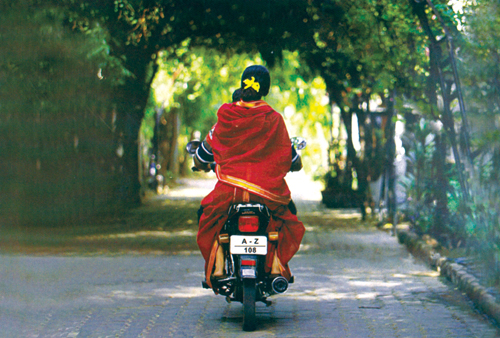|
When the Aaron family re-located in India from Burma, it was the opening move of Manuel Aaron’s chess career. India’s first International Master, nine times National Champion and an International Arbiter, 79-year-old Aaron is a repository of facts on the history of chess in India. He started an exclusive magazine for chess as early as in 1983, has authored several books on chess, and has shared the nuances of the game with players who later became celebrities.
Manuel Aaron is from a family of chess players and was introduced to the game by his grandfather. Now his son Aravind is a National Champion, chess journalist and a chess trainer and the game goes on. Manuel Aaron talks about the game in response to M. Rajini’s questions.
A game of chess is actually a simulated war. Tell us about chess in early times.
You know, Buddhist monks in the 6th Century were actually encouraged to play chess to keep them away from war. Playing the game actually quenched their thirst for fighting a battle. Later, parents let their children play chess so they can keep them out of mischief outdoors (laughts). Now India has made it to the international arena.

One of the most appealing pictures we have seen in a long time. This is the front of a postcard invitation for Åta Kapur
Chishti's recent exhibition at Apparao Galleries, Sari: celebrating the unstiched garment.
How tough was it to learn the technicalities of the game when books and newspapers were the only media available then?
The challenge made it more exciting. I used to constantly read the Encyclopaedia Britannica in the library. Newspapers used to carry chess problems and also publish the names of those who solved them. We used to avidly read all the literature available on the subject. Then there was correspondence chess which kept us pondering over moves and strategies.
Oh! What is correspondence chess?
We played chess with other enthusiasts by sending a postcard recording our move. The game went on through cards being sent back and forth. Sometimes it took months to finish a game. We would be playing with several people simultaneously. The pace was slow, but for every game we had time to analyse our moves and predict the outcome. It was a great opportunity to hone our skills. Even now we have Correspondence Chess Clubs.
There is an exciting category called ‘Blitz’ chess where players can set the timeframe for finishing the game. A clock is set beside the player to clock the time taken for every move. Both players hustle to make a move and hit the clock simultaneously. The player who exhausts his/her time first is the loser. The standard rules of movement, capture and game ending apply to his game.
Analysing a game is a tradition. I used to analyse games played by Russian players, give lectures and demonstrate on the board. Even parents used to attend those sessions.
You are a Fide rated (2300) player. Who decides the ratings?
Fide (Fédération Internationale des Échecs) is the organisation that governs international chess competition. Women are rated together with men. Rating is a method for calculating the relative skill levels of players. If two people with the same rating compete, the chances of a win are 50-50. A system called the law of probability is used to determine your chance of winning a game. If your expectancy curve is high and you lose, your rating will take a dive, whereas the other person, who was not expected to win but did, will get a high rating. Vishwanath Anand’s rating is 2792. FIDE also decides the title ‘Grandmaster’. It is a title for life. India has 38 Grandmasters at present.
Do children flood into classes only when India is in the international arena?
No. Chess is listed in the games which get you admission to professional colleges under the sports quota. Many parents are keen on introducing the game to their children. It is left to the child and the academy to sustain its interest.
About Chessmate and the club...?
Aaron Chess Academy is the first of its kind in Chennai. It is a hub for all chess lovers and aspirants of the game. We offer opening advice and strategies, a chess library and information on forthcoming open tournaments. We also conduct classes through Internet Chess Club and Skype at US $30 an hour.
Chessmate is our monthly chess magazine, a gateway to world chess. (Courtesy: Adyar Times)
|

